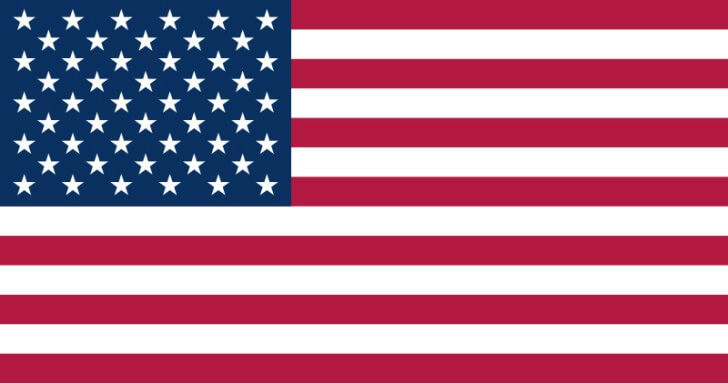Government-Supported Paid Drilling Training: No Experience Required / Learn While You Earn / Up to $26 per Hour During Training
2025 Latest Policy | 18+ | No Experience Needed
As a major oil-producing country, the demand for drilling workers in the United States has been growing in recent years. Now, opportunities for government-supported paid drilling training are available, with no experience required, allowing you to learn while you earn. During training, the pay can reach up to $26 per hour.
Continue reading to learn how to apply for the paid drilling training and start a stable and valuable career path!
What is Government-Supported Paid Drilling Training?
Government-supported paid drilling training is a vocational training program supported by the government. The aim of these programs is to equip individuals with the necessary professional skills for the drilling and oil extraction fields. These programs are designed to help individuals with no prior experience gain essential skills and enter the drilling industry.
Benefits of Government-Supported Paid Drilling Training
1.No Experience Required, Learn While You Earn
No prior experience is needed to qualify for paid training, and trainees can earn an hourly wage of up to $26 during the training period. Apprentices gain hands-on experience while earning a salary, alleviating the financial burden.
2.Nationwide Certification, No Employment Pressure
You will receive a Department of Labor-recognized Registered Apprenticeship (RA) and an API certificate upon completion. These credentials are highly regarded by employers and provide access to high-paying jobs with no employment pressure.
3.No Extra Costs + Government Subsidies
Employers cover the cost of training, and additional living subsidies may be available.
4.Generous Benefits
You will enjoy benefits such as retirement plans, health insurance, and paid leave. You may also be eligible for tuition reimbursement or entrepreneurship grants, offering long-term career stability.
Who Should Apply for Government-Supported Paid Drilling Training?
1.Job Seekers with No Experience:Those with no drilling industry experience who want to start from scratch. This program provides them with the opportunity to learn and enter the industry.
2.Professionals Looking for a Career Change:Individuals working in other industries who plan to transition into drilling or the energy sector. The program helps them transition into a new field with on-the-job training and practical experience.
3.Low-Income and Unemployed Individuals:Government-supported paid training programs not only provide paid training, but also provide wages during the training period to help them regain employment opportunities.
4.Young People and Recent Graduates:This program provides a fast-track, no-experience path into a high-paying industry, while also offering certification and career development opportunities.
How to Apply for Government-Supported Paid Drilling Training in the U.S.
1.Confirm Eligibility Requirements:Check the eligibility criteria for training programs. Most programs require applicants to be at least 18 years old and possess a high school diploma or equivalent, as well as pass basic math tests.
2.Search for Training Programs:Visit platforms like ( Apprenticeship.gov ) to search for paid drilling apprenticeships, learn about the application process, and confirm available openings.
3.Fill Out the Application Form:Submit your application and prepare the necessary documents and resume. Some programs may require an interview.
4.Complete Training and Start Employment:Participate in paid training, earn your certificate and credentials, and transition into a job upon completion of the program.
Follow these steps to locate resources near you.
Real Case: Michael Johnson’s Journey from No Experience to Drilling Project Manager
Michael Johnson, a young man from Pennsylvania, previously worked various temporary jobs but had a strong interest in the oil industry. Due to his lack of relevant experience and skills, he struggled to find stable work. After learning about the government-supported paid drilling training program, he decided to enroll.
During the 18-month apprenticeship, Michael received hands-on training in on-site operations and safety management. Not only did he earn a paid wage during the program, but he also passed the American Petroleum Institute (API) certification exam, receiving a nationally recognized drilling qualification. Upon completion, Michael was hired by a large energy company as a drilling worker and quickly gained experience.
Years later, Michael was promoted to project manager, overseeing multiple drilling projects. He credits the government-supported paid training with helping him transition from a beginner with no experience to a successful professional in the oil industry, providing him with both career development and high-paying job opportunities.
Conclusion
Government-supported paid drilling training programs offer valuable opportunities for job seekers without relevant experience, helping them enter the high-paying, promising drilling industry. Through hands-on training, industry certification, and skill development, participants not only enter the workforce but also experience career growth. Success stories like Michael Johnson's demonstrate the immense value of these training programs, providing individuals with stable employment opportunities while also nurturing a skilled workforce for the oil and gas industry. For those seeking new career opportunities and development, these programs are undoubtedly a key pathway to success.

